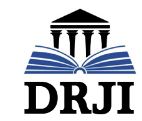The Influence of Da'wah Content on Social Media on Generation Z's Religious Understanding at STAI Balikpapan
Abstract
This study aims to determine the influence of da'wah content on social media on the religious understanding of generation Z, with the research subject of students of the Islamic Religious College (STAI) Balikpapan. The background of this research is based on the increasing use of social media as a medium for spreading da'wah among the younger generation. The method used is a quantitative method with a survey approach. The sample in this study amounted to 30 students who were selected purposively, with active criteria using social media and included in the age category of Generation Z. Data collection techniques used questionnaires, and data analysis was carried out by simple linear regression test. The results of the study showed that there was no significant influence between da'wah content on social media on students' religious understanding. These findings indicate that exposure to da'wah content on social media has not been effective enough in increasing religious understanding among the younger generation. Therefore, it is recommended that da'wah content be packaged in a more attractive, interactive, and tailored to the characteristics of Generation Z to increase the effectiveness of the religious message conveyed.
Keywords
Full Text:
PDFReferences
Abdusshomad, A. (2024). Peran Ustadz Influencer dalam Penyebaran Dakwah Islam kepada Generasi Z melalui Media Sosial. Muqaddimah: Jurnal Studi Islam.
Center., P. R. (2019). Where Millennials end and Generation Z begins.
Ika, U., Az Zahra, J., Razzaq, A., & Nugraha, M. Y. (2025). Strategi komunikasi dakwah digital pada akun TikTok Kadam Sidik. NAAFI: Jurnal Ilmiah Mahasiswa, 2(3), 421–433.
Nabila, J., Zahra Qutratu, M., Diky Yulianto, M., & Purwo Yudi Utomo, A. (2023). Analisis Tindak Tutur Direktif Pada Daftar Putar Video Pembelajaran Bahasa Indonesia Quipper Video.
Naufaldhi, M. R. (2024). Strategi kreatif komunikasi dakwah di media sosial untuk Generasi Z. UII.
Nawawi, A. (2025). Penggunaan Media Sosial sebagai Sarana Dakwah dan Pendidikan Islam bagi Generasi Z. Indonesian Journal of Research and Service Studies, 2(3).
Nurdin, S. (2003). Guru profesional dan implementasi kurikulum. Jakarta: Ciputat Press.
Qardhawi, Y. (1994). Fiqh al-Dakwah. Kairo: Maktabah Wahbah.
Rejeki, A. S., Prayoga, M. A. K., & Al-Fauzan, M. A. (2024). Dakwah video pendek: Sebuah analisis peranan dakwah digital terhadap pemahaman nilai-nilai Islam bagi Gen Z. Relinesia: Jurnal Kajian Agama dan Multikulturalisme Indonesia, 3(2), 27–32.
Sumardianto, E. (2025). Dakwah kepada Gen Z: Tinjauan Komponen Manajemen Dakwah. Tanzhim: Jurnal Manajemen Dakwah, 3(1), 67–82.
Zikrillah, A., & Mutaqin, Z. (2024). Kesesuaian konten dakwah komunikasi visual di Instagram terhadap konsep moderasi beragama Kementerian Agama. Syekh Nurjati: Jurnal Studi Sosial Keagamaan.
DOI: https://doi.org/10.46576/ijsseh.v6i3.7198
Article Metrics
Abstract view : 72 timesPDF – 36 times
Refbacks
- There are currently no refbacks.
Copyright (c) 2025 Annisa Yuniar Fakhiriyah, Iskandar Yusuf

This work is licensed under a Creative Commons Attribution-NonCommercial-ShareAlike 4.0 International License.
Dharmawangsa International Journal Indexed by:
Member Of :
Dharmawangsa: International Journal of the Social Sciences, Education and Humanitis Published By:
UNIVERSITAS DHARMAWANGSA
Alamat : Jl. K. L. Yos Sudarso No. 224 Medan
Kontak : Tel. 061 6635682 - 6613783 Fax. 061 6615190
Email : dharmawangsajournal@dharmawangsa.ac.id
Dharmawangsa:International Journal of the Social Sciences, Education and Humanitis by Universitas Dharmawangsa Medan is licensed under a Creative Commons Attribution-NonCommercial-ShareAlike 4.0 International License.
Based on a work at: https://jurnal.dharmawangsa.ac.id/index.php/dharmawangsa/index

11.jpg)
















